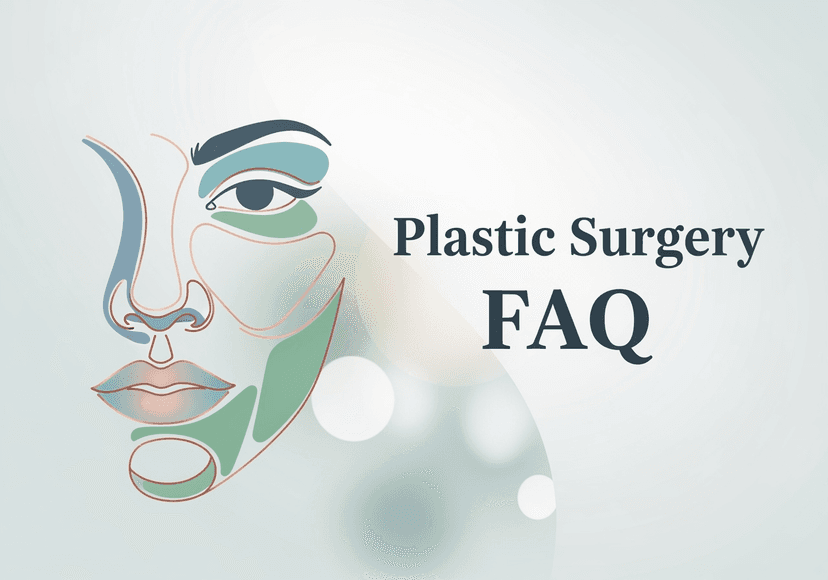
Long-Term Follow-Up After Kidney Transplant
30 Oct, 2025
 Healthtrip
Healthtrip- Where to Receive Long-Term Follow-Up Care < li>Why Long-Term Follow-Up is Crucial
- Who is Involved in Your Long-Term Care Team?
- How Long-Term Follow-Up is Conducted
- Medication Management After Kidney Transplant
- Lifestyle Adjustments and Monitoring for Long-Term Health
- Examples of Successful Long-Term Kidney Transplant Management
- Conclusion
Why Long-Term Follow-Up is Crucial
Long-term follow-up after a kidney transplant is absolutely essential for safeguarding your health and ensuring the longevity of your transplanted kidney, it's your proactive shield, watching out for potential complications that might emerge over time. Regular check-ups aren't just about ticking boxes; they're about building a strong partnership with your healthcare team. These visits allow doctors to monitor kidney function, detect early signs of rejection (when your body attacks the new organ), and manage side effects from immunosuppressant medications, these medications, while crucial for preventing rejection, can sometimes lead to other health issues like high blood pressure, diabetes, or increased risk of infection. Early detection is key! Think of it like catching a small leak in a dam before it becomes a catastrophic flood. By diligently attending follow-up appointments at facilities like Memorial Sisli Hospital, our partner hospital, you empower your medical team to make timely adjustments to your treatment plan, minimizing risks and maximizing the chances of your kidney functioning well for many years to come. Because let's face it, nobody wants a bumpy ride after such a monumental milestone!
Most popular procedures in India
What to Expect During Follow-Up Appointments
So, what exactly happens during these all-important follow-up appointments? Well, they're designed to be comprehensive and personalized to your specific needs. You can expect a thorough review of your medical history, including any new medications or health concerns you might have. Your doctor will likely order blood and urine tests to assess your kidney function and monitor for any signs of rejection or infection. Blood pressure checks and weight monitoring are also standard procedure. Depending on your individual situation, you might also undergo imaging tests like ultrasounds or biopsies to get a closer look at your kidney. But don't worry, it's not all needles and tests! These appointments also provide a valuable opportunity to openly discuss any concerns or questions you have with your healthcare team. They're there to support you, address your anxieties, and help you navigate any challenges you might be facing, whether it's managing side effects from medications or adjusting to a new lifestyle. Perhaps you'll connect with specialists at world-class hospitals like Saudi German Hospital Cairo, Egypt. So, come prepared with your questions, your worries, and even your wins – because every step of the journey deserves recognition!
Wellness Treatments
Give yourself the time to relax
Lowest Prices Guaranteed!

Lowest Prices Guaranteed!
Managing Medications and Potential Side Effects
Let's talk about medications – the unsung heroes (and sometimes villains) of the post-transplant world. Immunosuppressant drugs are your kidney's best friends, working tirelessly to prevent your body from rejecting it. However, like any powerful medication, they can sometimes come with side effects. These can range from mild annoyances like nausea or fatigue to more serious concerns like increased risk of infection or diabetes. The key is to be proactive! Regularly communicate with your doctor about any side effects you're experiencing, even if they seem minor. Don't suffer in silence! Your doctor can adjust your medication dosage, prescribe additional medications to manage the side effects, or recommend lifestyle changes to mitigate their impact. Think of it as fine-tuning a musical instrument – sometimes a little adjustment is all it takes to create beautiful harmony. It's also crucial to adhere to your medication schedule diligently. Missing doses can increase the risk of rejection, jeopardizing the health of your new kidney. Healthtrip can connect you with pharmacies and medication management resources to help you stay on track, perhaps through facilities near you, anywhere from NMC Specialty Hospital, Al Nahda, Dubai to the Yanhee International Hospital, ensuring you have the support you need to manage your medications effectively. Remember, you're not alone in this – your healthcare team is there to help you navigate the medication maze and find the right balance for your individual needs.
Lifestyle Adjustments for Long-Term Success
Beyond medications and check-ups, embracing a healthy lifestyle is paramount for long-term success after a kidney transplant. Think of it as building a strong foundation for your new kidney to thrive on. This means adopting a balanced diet rich in fruits, vegetables, and lean protein, while limiting processed foods, sugary drinks, and excessive salt intake. Regular exercise is also crucial, helping you maintain a healthy weight, improve cardiovascular health, and boost your immune system. But remember to consult with your doctor before starting any new exercise program. Protecting yourself from infections is another key aspect of a healthy post-transplant lifestyle. This means practicing good hygiene, avoiding contact with sick people, and getting vaccinated against preventable diseases (after consulting with your doctor, of course!). It's about being smart, not scared! And don't underestimate the power of stress management. Chronic stress can weaken your immune system, making you more susceptible to infections and other health problems. Find healthy ways to cope with stress, such as meditation, yoga, or spending time in nature. Healthtrip can connect you with wellness resources and support groups to help you navigate the emotional and lifestyle adjustments that come with a kidney transplant, perhaps connecting you with specialists from hospitals like Vejthani Hospital. Remember, taking care of your mind and body is an investment in your long-term health and the well-being of your new kidney.
When to Seek Immediate Medical Attention
While routine follow-up appointments are essential, it's also important to be aware of warning signs that require immediate medical attention. Acting quickly can make all the difference in preventing serious complications. If you experience any of the following symptoms, don't hesitate to contact your doctor or go to the nearest emergency room: fever (especially above 100.4°F or 38°C), decreased urine output, sudden weight gain, swelling in your legs or ankles, pain or tenderness around your transplanted kidney, flu-like symptoms, or any other unusual or concerning symptoms. Trust your gut feeling! If something doesn't feel right, err on the side of caution and seek medical advice promptly. It's always better to be safe than sorry! Remember, your healthcare team is there to support you 24/7. Don't hesitate to reach out to them with any concerns, no matter how small they may seem. Healthtrip can help you find immediate care options and connect you with specialists at hospitals like Fortis Escorts Heart Institute, ensuring you receive the timely medical attention you need. Your health is our top priority, and we're committed to providing you with the resources and support you need to navigate any medical challenges that may arise.
Where to Receive Long-Term Follow-Up Care
Embarking on a kidney transplant journey is a significant milestone, offering a renewed lease on life. But it’s not just about the surgery itself; the real key to sustained success lies in diligent long-term follow-up care. Think of it as nurturing a delicate sapling into a strong, resilient tree. Finding the right place for this essential care is like choosing the perfect soil and sunlight, ensuring a thriving future. Your initial transplant center will likely be your primary source for follow-up care, offering seamless continuity with the medical team who know your history best. Places like Fortis Shalimar Bagh, with their experienced transplant teams, often provide comprehensive post-transplant services, making the transition smoother. Consider factors like the center’s expertise in managing post-transplant complications, the availability of specialized services like nephrology and immunology, and, of course, the overall patient experience. It's important to feel comfortable and confident in the hands of your healthcare providers, knowing they’re equipped to handle any challenges that may arise. Afterall, this is a long term relationship, it's more like a marriage. The best location will be fully equipped with the perfect doctors and support staff.
Beyond your transplant center, explore other options that might better suit your long-term lifestyle and location. Some individuals find it beneficial to establish a relationship with a local nephrologist, working in tandem with their transplant team. This can be especially helpful for routine monitoring and managing day-to-day health concerns, preventing minor issues from snowballing into major problems. Hospitals like Saudi German Hospital Cairo, Egypt, offer comprehensive nephrology services that could be a valuable asset in your long-term care plan. Choosing a location with easy access to the medical care you require minimizes stress and ensures timely intervention if needed. Remember, Healthtrip can assist you in finding reputable medical facilities and specialists, both locally and internationally, making the process of securing long-term follow-up care less daunting. Think of us as your partner, helping you navigate the complex healthcare landscape and find the perfect fit for your individual needs. So, whether it’s a renowned transplant center or a trusted local nephrologist, the key is to establish a strong network of support dedicated to your well-being.
Consider also the practical aspects of choosing a follow-up care location. Think about travel time, insurance coverage, and the availability of support services. A center that is conveniently located and covered by your insurance will undoubtedly ease the burden of regular check-ups. Furthermore, inquire about the center's approach to patient education and support groups. Knowledge is power, and understanding your condition and treatment plan is crucial for long-term success. Support groups, whether in-person or online, can provide a valuable platform for sharing experiences, gaining insights, and connecting with others who understand what you're going through. Facilities like Max Healthcare Saket are known for their patient-centric approach, offering comprehensive support services to ensure a holistic recovery. Moreover, always investigate the post-transplant program. A good program will be able to walk you through the diet, exercise and other things that you should be aware of. Healthtrip's services can help connect you with these resources to make sure you can have a smooth transplant recovery and long term wellness.
Why Long-Term Follow-Up is Crucial
Imagine planting a beautiful garden; the initial planting is just the beginning. Without consistent watering, weeding, and nurturing, even the most promising seedlings will wither. Long-term follow-up care after a kidney transplant is akin to this consistent gardening, ensuring your new kidney thrives for years to come. The primary reason for this ongoing care is to monitor the function of your transplanted kidney and detect any signs of rejection early on. Rejection doesn’t always present with obvious symptoms; sometimes, it's a silent process that can gradually damage the kidney if left unchecked. Regular blood tests and urine analyses, conducted as part of your follow-up appointments, can help your medical team identify subtle changes that might indicate rejection is brewing. Think of these tests as your kidney's regular health reports, providing valuable insights into its well-being. Places like Fortis Memorial Research Institute, Gurgaon, are equipped with state-of-the-art diagnostic facilities to ensure accurate and timely detection of any potential issues. Without these routine checkups, it will be hard to know if the kidney will last, reducing its life significantly.
Beyond rejection monitoring, long-term follow-up is also crucial for managing the side effects of immunosuppressant medications. These medications are essential for preventing your body from attacking the new kidney, but they can also have various side effects, such as increased risk of infection, high blood pressure, and diabetes. Your healthcare team will carefully monitor you for these side effects and adjust your medication regimen as needed to minimize their impact. This personalized approach is essential for balancing the benefits of immunosuppression with the potential risks. Hospitals like Singapore General Hospital, known for their comprehensive transplant programs, prioritize individualized care, tailoring treatment plans to each patient's unique needs. Furthermore, the immune suppressants may increase the risks of cancer, so regular checkups are important. Make sure to have a fully open conversation with your doctor on this. The key is to know as much as possible to plan for the long term.
Moreover, long-term follow-up care encompasses a holistic approach to your overall health. It includes regular screenings for other potential health problems, such as cardiovascular disease and cancer, which can be more common in transplant recipients. Lifestyle counseling, including guidance on diet, exercise, and smoking cessation, is also an integral part of follow-up care. Think of it as a comprehensive wellness program designed to optimize your health and well-being. Centers like Vejthani Hospital in Bangkok offer comprehensive rehabilitation and wellness programs to support patients in their journey to long-term health. By actively participating in your follow-up care and adopting a healthy lifestyle, you can significantly improve your chances of a long and fulfilling life with your transplanted kidney. Thus, its a full rounded approach to the kidney transplant journey, and should not be skipped.
Who is Involved in Your Long-Term Care Team?
A successful kidney transplant journey requires a village, and your long-term care team is the heart of that village. It's a collaborative effort, with each member playing a vital role in ensuring your well-being. At the core of your team is your transplant nephrologist, the quarterback of your care. This doctor specializes in kidney disease and transplantation, and they will be responsible for monitoring your kidney function, managing your immunosuppressant medications, and coordinating your overall care. They’re your go-to person for any questions or concerns related to your kidney transplant. Think of them as your trusted guide, navigating the complexities of post-transplant care with you. Facilities like Cleveland Clinic London often have multidisciplinary transplant teams with highly specialized nephrologists. It's important to build excellent rapport with your team, trusting them with your health.
Beyond the nephrologist, your team may also include other specialists, such as a transplant surgeon, an infectious disease specialist, a cardiologist, and a dietitian. The transplant surgeon, while primarily involved in the initial surgery, may still be consulted for certain issues related to the transplant. An infectious disease specialist can help manage any infections that may arise, particularly given the immunosuppressed state. A cardiologist can monitor your cardiovascular health, as transplant recipients are at increased risk of heart disease. A dietitian can provide guidance on a kidney-friendly diet to help you maintain optimal health. Places like Mount Elizabeth Hospital in Singapore offer access to a wide range of specialists, ensuring comprehensive care under one roof. The best approach is one which covers all possibilities.
Importantly, don't underestimate the importance of nurses, pharmacists, and social workers in your care team. Nurses are often the first point of contact for questions and concerns, providing essential support and education. Pharmacists ensure you are taking your medications correctly and can help manage any side effects. Social workers can provide emotional support and connect you with resources to help you navigate the challenges of life after transplant. These professionals can be found at hospitals like Memorial Sisli Hospital. Remember, you are the most important member of your care team. Your active participation, open communication, and commitment to following your treatment plan are essential for long-term success. Feel free to ask questions, voice concerns, and advocate for your needs. After all, it's your health, and your voice matters greatly. The support staff are there to help you, so always feel welcome to reach out.
Also Read:
How Long-Term Follow-Up is Conducted
Long-term follow-up after a kidney transplant is a multifaceted process, designed to monitor your health comprehensively and proactively address any emerging issues. This involves a combination of regular clinic visits, laboratory tests, and imaging studies. During each visit, your healthcare team, which might include specialists from hospitals like Fortis Memorial Research Institute, Gurgaon or Max Healthcare Saket, will assess your overall well-being. This includes discussing any changes in your health, reviewing your current medications, and addressing any concerns you may have. They will also perform a physical examination to look for any signs of complications, such as fluid retention, infection, or rejection. The frequency of these visits will gradually decrease over time as your condition stabilizes, but they remain a crucial part of your ongoing care.
Laboratory tests are a cornerstone of long-term follow-up. Regular blood tests are essential to monitor kidney function, electrolyte balance, and blood counts. These tests help to detect any signs of kidney dysfunction or rejection early on. In addition, blood levels of immunosuppressant medications are closely monitored to ensure that they are within the therapeutic range, preventing both rejection and toxicity. Urine tests are also performed to check for protein, blood, and infection. Imaging studies, such as ultrasound or computed tomography (CT) scans, may be performed periodically to assess the structure and function of the transplanted kidney. These tests help to identify any structural abnormalities, such as blockages or masses. The results of all these tests are carefully reviewed by your healthcare team to develop a personalized treatment plan tailored to your specific needs. For those traveling for transplant, Healthtrip can assist in coordinating these follow-up appointments with quality facilities, ensuring continuity of care even across borders.
Also Read:
Medication Management After Kidney Transplant
Managing medications after a kidney transplant is a lifelong commitment, and it's absolutely vital for protecting your new kidney. Immunosuppressant drugs are the cornerstone of this medication regimen. These medications work by suppressing your immune system, preventing it from attacking your transplanted kidney. It’s a delicate balancing act – enough immunosuppression to prevent rejection, but not so much that you become highly susceptible to infections. Commonly prescribed immunosuppressants include tacrolimus, cyclosporine, mycophenolate mofetil, and azathioprine, which might be available at renowned hospitals like Memorial Sisli Hospital or Vejthani Hospital. Each of these medications has its own potential side effects, so your healthcare team (maybe even via telemedicine coordinated by Healthtrip) will closely monitor you for any adverse reactions. Dosage adjustments may be necessary from time to time to optimize the balance between preventing rejection and minimizing side effects.
In addition to immunosuppressants, you may also need to take other medications to manage specific health conditions. Antihypertensive medications are often prescribed to control blood pressure, as high blood pressure can damage the transplanted kidney. Diuretics, or water pills, may be used to reduce fluid retention. Statins are often prescribed to lower cholesterol levels, reducing the risk of cardiovascular disease. Antibiotics or antiviral medications may be needed to treat or prevent infections. It is crucial to take all medications as prescribed, even if you are feeling well. Never stop taking or change the dosage of any medication without consulting your healthcare provider. Maintaining open communication with your healthcare team is essential for medication management. Report any side effects or concerns you may have, and keep a detailed list of all medications you are taking, including dosages and frequencies. This will help your healthcare team make informed decisions about your care, whether you are receiving treatment at Fortis Hospital, Noida, or coordinating with your home physician through Healthtrip.
Also Read:
Lifestyle Adjustments and Monitoring for Long-Term Health
Adopting a healthy lifestyle is paramount to ensuring the long-term success of your kidney transplant. This entails making significant adjustments to your diet, exercise routine, and overall habits. A kidney-friendly diet is low in sodium, phosphorus, and potassium. Limiting sodium intake helps to control blood pressure and reduce fluid retention. Phosphorus and potassium are minerals that the kidneys normally regulate, but a transplanted kidney may not be able to handle high levels of these minerals. Your healthcare team can provide you with specific dietary guidelines tailored to your individual needs. Regular physical activity is also essential for maintaining overall health. Aim for at least 30 minutes of moderate-intensity exercise most days of the week. Exercise helps to control blood pressure, lower cholesterol levels, and maintain a healthy weight. But don't overdo it; listen to your body and avoid activities that put too much stress on your transplanted kidney. Hospitals such as Saudi German Hospital Cairo, Egypt can provide specific dietary and exercise plans.
Avoiding tobacco and limiting alcohol consumption are also crucial for long-term health. Smoking damages blood vessels and increases the risk of cardiovascular disease, while excessive alcohol consumption can damage the liver and kidneys. Protecting yourself from infections is also important. Wash your hands frequently, avoid close contact with people who are sick, and get vaccinated against common infections, such as the flu and pneumonia. Regular skin checks are also recommended, as people who take immunosuppressant medications have an increased risk of skin cancer. Mental health is just as important as physical health. It’s normal to experience a range of emotions after a kidney transplant, from relief and gratitude to anxiety and depression. If you are feeling overwhelmed, talk to your healthcare provider or a mental health professional. Support groups can also provide a valuable source of emotional support. Healthtrip connects patients with comprehensive post-transplant support, including mental health resources, ensuring holistic well-being beyond the medical aspects.
Examples of Successful Long-Term Kidney Transplant Management
Hearing firsthand accounts of individuals thriving years after their kidney transplants can provide immense hope and inspiration. These stories underscore the possibility of leading a fulfilling and active life post-transplant, emphasizing the significance of diligent long-term management. Consider the story of a patient who, after receiving a kidney transplant at a facility like Bangkok Hospital, diligently adhered to their medication regimen, adopted a kidney-friendly diet, and engaged in regular exercise. Years later, they are not only enjoying excellent kidney function but have also returned to their passions, traveling the world and spending quality time with family. Another example is a patient who, under the care of NMC Specialty Hospital, Al Nahda, Dubai, proactively engaged with their healthcare team, reporting any concerns promptly. This collaborative approach allowed for early detection and management of potential complications, ensuring the longevity of their transplanted kidney. These narratives illustrate that successful long-term kidney transplant management is a result of a combination of factors.
These factors include adherence to medication regimens, which is non-negotiable. Consistent monitoring of kidney function and medication levels is crucial to detect and address any potential issues early on. Lifestyle adjustments, such as adopting a healthy diet and exercise routine, play a vital role in maintaining overall health and reducing the risk of complications. Perhaps most importantly, it’s about proactive engagement with your healthcare team, fostering open communication, and reporting any concerns promptly. Patient support groups and online communities, perhaps even facilitated through Healthtrip’s platform, further contribute to successful outcomes by providing emotional support, education, and a sense of belonging. These stories serve as reminders that a kidney transplant is not the end of a journey, but rather a new beginning. With dedication, vigilance, and the support of a committed healthcare team, individuals can thrive and enjoy a high quality of life for many years to come. The success rates at institutions such as Singapore General Hospital showcase the potential for positive outcomes with proper management.
Also Read:
Conclusion
Embarking on the journey of a kidney transplant is a life-altering experience, filled with both challenges and opportunities. While the surgery itself is a significant milestone, the long-term follow-up care is equally crucial for ensuring the success and longevity of your transplanted kidney. Through regular monitoring, diligent medication management, and proactive lifestyle adjustments, you can actively participate in your own well-being and thrive for years to come. Remember, you are not alone in this journey. A dedicated team of healthcare professionals, including nephrologists, transplant surgeons, nurses, and other specialists, are there to support you every step of the way. Facilities like Quironsalud Hospital Murcia and Memorial Bahçelievler Hospital are equipped to provide comprehensive care.
Healthtrip is committed to empowering you with the information and resources you need to navigate the post-transplant journey with confidence. Whether you are seeking guidance on medication management, dietary recommendations, or emotional support, our platform provides a wealth of information and connects you with leading healthcare providers around the globe. We understand that long-term follow-up can sometimes feel overwhelming, especially when traveling for treatment. That's why we offer personalized assistance with coordinating appointments, managing medical records, and connecting you with support services in your local community. By taking an active role in your care and working collaboratively with your healthcare team, you can write your own success story. Embrace the opportunity to live a full and active life, knowing that you have the tools and support you need to thrive after your kidney transplant. Healthtrip is here to help you make that journey a reality, connecting you with world-class hospitals and ongoing support, ensuring a healthier, brighter future.
Related Blogs

Top Rated Hospitals for Eye Surgery in India
Detailed insights into eye surgery – doctors, hospitals, technology, recovery,

Long-Term Follow-Up After Plastic Surgery
Detailed insights into plastic surgery – doctors, hospitals, technology, recovery,

Healthtrip’s Transparency in Plastic Surgery Pricing and Packages
Detailed insights into plastic surgery – doctors, hospitals, technology, recovery,

Frequently Asked Questions About Plastic Surgery
Detailed insights into plastic surgery – doctors, hospitals, technology, recovery,

Advanced Robotic Technology Used in Plastic Surgery
Detailed insights into plastic surgery – doctors, hospitals, technology, recovery,

How Healthtrip Supports Foreign Patients for Plastic Surgery in India
Detailed insights into plastic surgery – doctors, hospitals, technology, recovery,










